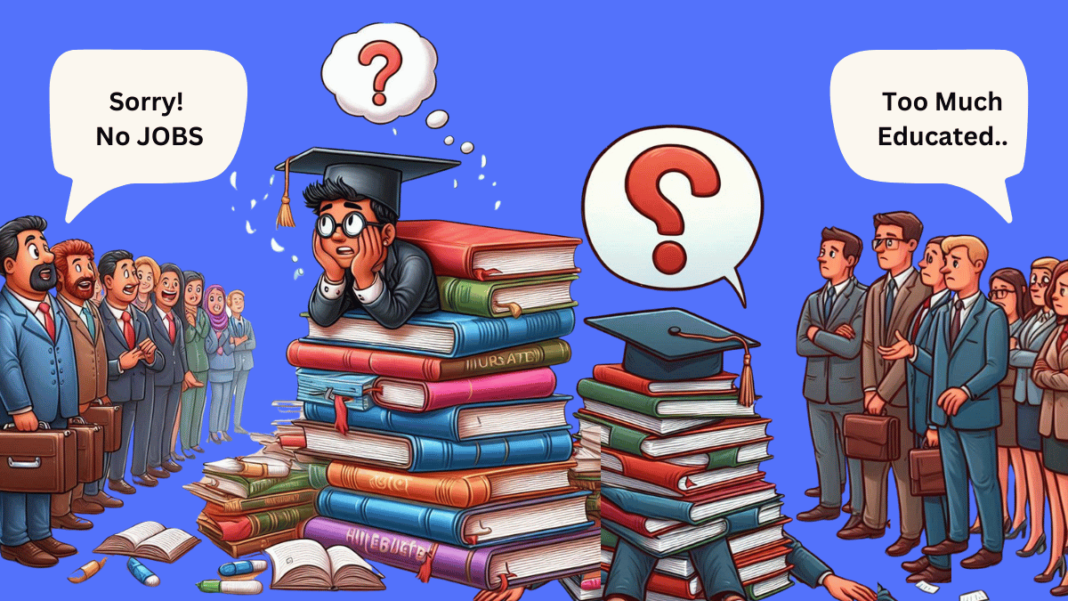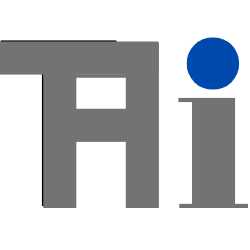Introduction
Education has long been heralded as a cornerstone of economic success, both on an individual and national level. Countries lacking natural resources or favorable geographic positions have nonetheless managed to outperform wealthier nations simply by fostering a well-educated populace. However, this trend towards increasing educational which is leading to Overqualification is have its pitfalls. In many parts of the world, education is reaching levels where the economic returns may not justify the costs, leading to questions about the sustainability and efficacy of current educational paradigms.
The Paradox of Education
Education as an Economic Driver
Historically, countries with higher literacy rates and better-educated populations have consistently shown stronger economic performance. The ability to engage in value-added manufacturing and services, which require basic literacy and technical skills, has been crucial for economic growth. Advanced economies thrive because they can innovate and develop world-class products and technologies, contributing significantly to global value chains.
Organisation for Economic Co-operation and Development (OECD) – Education at a Glance https://www.oecd.org/education/education-at-a-glance/
Overeducation and Economic Imbalance
However, the pursuit of higher education may be going too far. The economic concept of diminishing returns applies here—beyond a certain point, additional education does not equate to proportionate economic benefits. In fact, overeducation can lead to several issues:
- Skills Mismatch: Graduates with advanced degrees may find themselves in jobs that do not require such qualifications, leading to underemployment and dissatisfaction.
- Student Debt: The financial burden of higher education can be significant, impacting individuals’ ability to participate fully in the economy post-graduation.
- Workforce Participation: Extended periods of education delay entry into the workforce, reducing the overall productive years of an individual’s career.
World Bank – Education and Development https://www.worldbank.org/en/topic/education
Overeducation in Generation Z

Generation Z, those born between 1997 and 2012, are experiencing overeducation more acutely than previous generations. A survey by the Deloitte Global Millennial Survey in 2020 revealed that nearly 60% of Gen Z respondents felt their education had not adequately prepared them for the job market. This generation, growing up in an era of rapid technological change and globalization, is often encouraged to pursue higher education as a universal remedy for economic challenges. However, many Gen Z individuals are finding that the job market does not have enough high-skilled positions to match their qualifications, leading to frustration and disillusionment.
Pew Research Center – Millennials vs. Gen Z https://www.pewresearch.org/
Misconceptions: Overeducation vs. Knowledgeability
A common misconception is equating overeducation with being knowledgeable. While a well-rounded education can contribute to a broad understanding of various subjects, overeducation implies that the level of formal education exceeds the requirements of the job market. Employers often look for specific skills and practical experience rather than purely academic achievements. This distinction is critical because it affects how individuals prepare for and enter the workforce. Overeducated individuals may have a vast amount of theoretical knowledge but lack the practical skills needed for their desired careers.
Corporate Hesitation and Job Market Dynamics

Corporations often hesitate to hire highly educated individuals for roles that do not match their qualifications. This hesitation stems from several concerns:
- Job Role Justification: Employers may feel that the job role does not justify the qualifications of the applicant. For instance, a job that requires a high school diploma may not fully utilize the skills of someone with a master’s degree.
- Retention Concerns: Highly educated individuals may leave the position quickly if a better opportunity arises, leading to higher turnover rates.
- Salary Expectations: Overeducated candidates may have higher salary expectations that the company cannot meet for the given role.
These factors contribute to the paradox where individuals with higher education may find it harder to secure suitable employment. A survey by the Society for Human Resource Management (SHRM) in 2019 found that 46% of employers had difficulty finding candidates with the right skills, despite an abundance of highly educated applicants.
Employee Dissatisfaction and Career Mismatches
A significant portion of the workforce feels misaligned with their current job roles. According to a 2019 Gallup poll, nearly 75% of employees reported that they would prefer to be doing something other than their current job. This widespread dissatisfaction indicates that many employees are in roles that do not match their skills, interests, or qualifications. This mismatch can lead to lower productivity, reduced job satisfaction, and higher turnover rates.
Association of American Colleges and Universities (AAC&U) – Employers Want More Than Just Skills https://www.aacu.org/liberaleducation/articles/what-employers-want-dispelling-myths-about-the-value-of-the-liberal-arts
Center on Education and the Workforce – The Skills Gap Myth https://www.uschamber.com/workforce/understanding-americas-labor-shortage-the-most-impacted-industries:
Training on the Job vs. College Curriculum
There is a widespread sentiment that on-the-job training often proves more valuable than years of formal education. Numerous individuals across various professions have shared their experiences online, indicating that practical, hands-on training at their workplaces equipped them better for their roles than their college curriculum did. This perception challenges the traditional view of higher education as the ultimate pathway to career readiness. For instance, a survey by McGraw-Hill Education in 2018 found that only 40% of college graduates felt their coursework had adequately prepared them for their careers.
Burning Glass Technologies – Skills Gap in Manufacturing https://www.burningglassinstitute.org/research/how-skills-are-disrupting-work
The Conference Board – Skills for a Changing Workforce https://www.conference-board.org/publications/transitioning-to-a-skills-based-organization-part-2
Influences of High-Profile Entrepreneurs

The statements and attitudes of prominent entrepreneurs like Elon Musk, Mark Zuckerberg, and others have further fueled the debate on the value of higher education. Elon Musk has publicly stated that he looks for evidence of exceptional ability rather than a college degree when hiring at Tesla and SpaceX. Similarly, Mark Zuckerberg, a Harvard dropout, emphasizes skills and hands-on experience over formal education. These influential figures’ perspectives resonate widely, spreading the notion that higher education might not be as crucial as previously thought. This sentiment can significantly impact how young people view education and how employers assess candidates.
Labor Theory of Value
The labor theory of value suggests that the value of a good or service is determined by the labor required to produce it. This theory highlights the importance of education in enhancing labor value. However, as economies evolve, the direct correlation between education and economic output becomes less clear.
For instance, countries like Japan and South Korea, with limited natural resources, have built robust economies based on highly educated workforces. Conversely, countries rich in natural resources, like many in Sub-Saharan Africa, often struggle economically due to lower levels of education and higher illiteracy rates. This dichotomy underscores the critical role education plays in economic development.
Subjective Theory of Value
The subjective theory of value posits that the worth of education is what people are willing to pay for it and what the labor market is willing to compensate for those skills. This perspective reveals that not all education is equally valuable in economic terms. The market demand for specific skills fluctuates, and an oversupply of highly educated individuals in certain fields can devalue those qualifications.
For example, a 2018 report by the Federal Reserve Bank of New York found that nearly 40% of recent college graduates in the United States were underemployed, working in jobs that typically do not require a college degree. This statistic highlights the growing mismatch between educational attainment and labor market needs.
Conclusion
Education remains a fundamental driver of economic success, but its role must be carefully managed to avoid the pitfalls of overeducation. By aligning educational systems with economic needs, promoting practical skills, and addressing issues like student debt, societies can harness the full potential of their educational investments.


